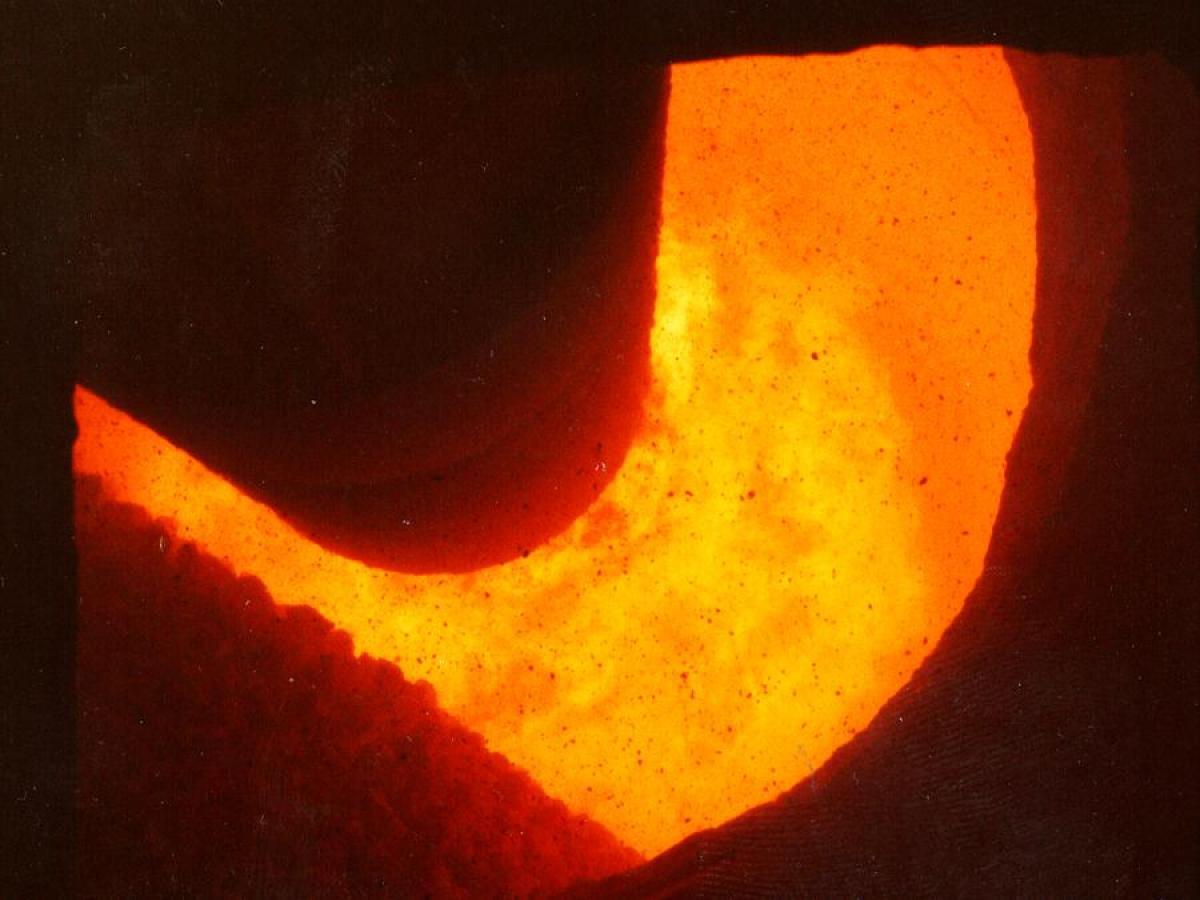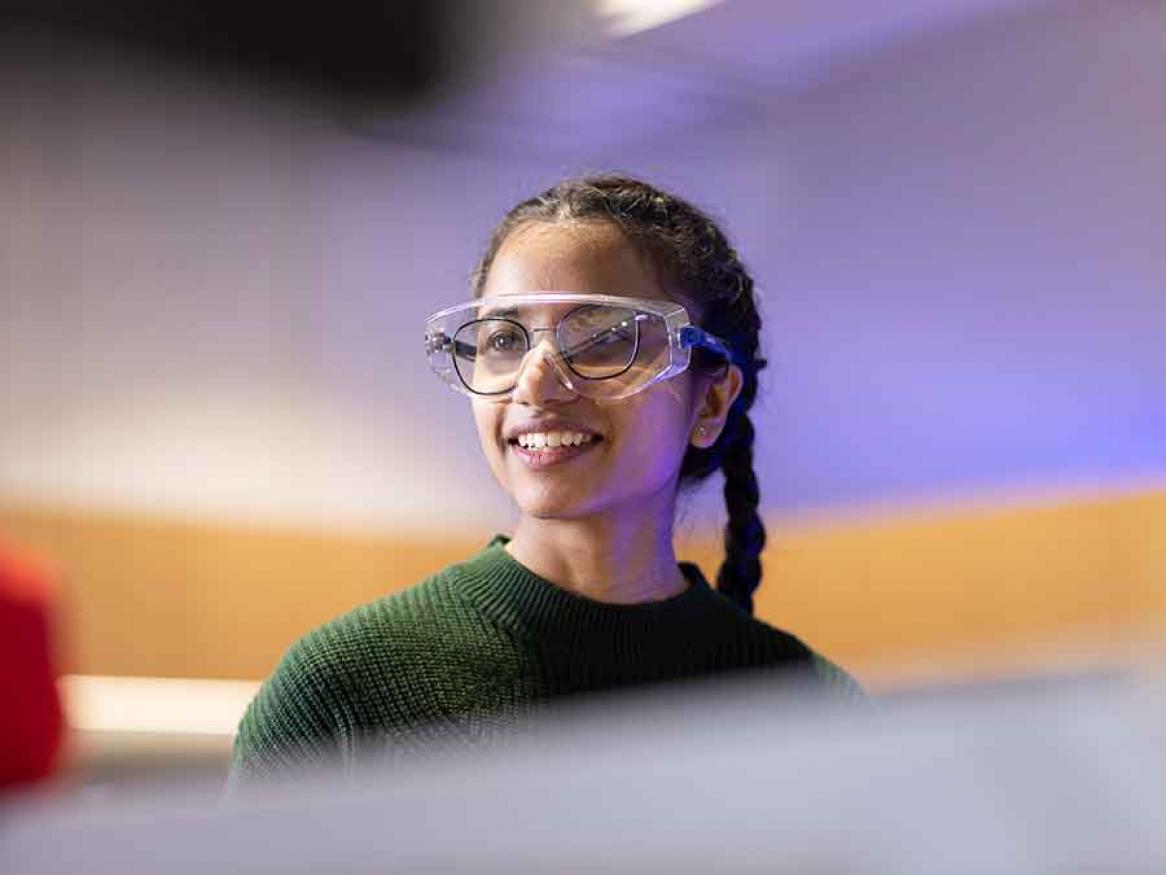Thermofluids
Thermofluids is a key branch of science and engineering. Our research focuses on heat transfer, thermodynamics, fluid mechanics and combustion.

Gyrotherm burner invented by the thermal-fluids team and developed in partnership with FCT-combustion. This achieve a 40-60% reduction in NOx emissions from rotary kilns and have been in ongoing commercial use since 1995.
Our Thermofluids researchers specialise in a range of areas, including:
- power generation and transformation
- renewable energy sources
- internal combustion engines
- jet engines and aerospace propulsion
- industrial flames and furnaces
- building energy management and efficiency.
We also have a keen interest in:
- atmospheric flow and microclimates
- bio-fluid dynamics and hemodynamics
- boundary layer, pipe and channel flows and turbulence
- laser diagnostics
- wind engineering
- water systems and desalination
- multi-phase flow
- computational fluid dynamics
- aeroacoustics
- aircraft aerodynamics
- experimental techniques and instrumentation
- ship and submarine hydrodynamics
- jets and wakes.
Our thermofluids research has direct relevance and benefit to industries including: aerospace, automotive, maritime, defence, energy, sports engineering and manufacturing.
-
Research impact
We work closely with industry and undertake diverse projects. Our research has had significant impact and commercial outcomes. Through our Thermofluids research, we:
- deliver innovative technologies for sustainable, secure and affordable energy to help accelerate society's transition to carbon neutrality
- reduce industry and household energy consumption and emissions through more efficient and better managed combustion, heating, cooking, refrigeration and air-conditioning
- develop energy-efficient water treatment and desalination systems, wind-power technology and bio-digesters
- design stable, efficient burners for industrial processes and ceremonial flame effects
- improve efficiency in machines (e.g. fans and pumps), lifting surfaces (e.g. wings) and wind farms
- reduce drag in vehicles and sporting apparel.
Our work has numerous real-world applications. For example, we have developed:
- stable and visible flames that have been used in Olympic torches, stadium cauldrons and theatrical flames around the world
- several patented designs applied for solar thermal energy storage
- an innovative, high-efficiency concept for hydrogen production
- particle agglomeration systems that remove harmful PM5 particles from combustion exhaust streams
- three patented burner systems now used in industrial processes and ceremonial and theatrical applications
- improved cycling equipment, including low-drag racing helmets and bicycle components, used by Australian Olympic and Commonwealth Games cycling teams.
-
Consulting services
We advise on, and lead, projects relating to:
- aerodynamic testing and evaluation
- combustion and heat transfer
- wind engineering
- complex computational fluid mechanics analysis
- fluid mechanics.
We are also often called on to act as expert witnesses in judicial proceedings.
To enquire about consulting or working with us on a research project, please contact Associate Professor Maziar Arjomandi.
-
Our researchers
Many of our researchers are available to assist with research project supervision for Master of Philosophy and Doctor of Philosophy students.
Research Team Expertise Associate Professor Maziar Arjomandi Fluid mechanics; Aerodynamics; Renewable energy Dr Cristian Birzer Fluid mechanics; Renewable energy; Combustion Professor Ben Cazzolato Acoustics; Vibrations; Control and signal processing Dr Rey Chin Fluid mechanics; Computational fluid dynamics; Flow control Associate Professor Eric Jing Hu Solar thermal applications; Refrigeration and air conditioning systems; Energy efficiency Adjunct Associate Professor Richard Kelso Fluid mechanics; Aerodynamics; Sports engineering Associate Professor Paul Medwell Combustion; Laser diagnostics; Humanitarian technology Professor Graham Nathan Thermal energy systems; Combustion; Solar energy Dr Zhao Feng Tien Computational fluid dynamics; Combustion; Renewable energy -
Collaborations
We work closely with the University’s Centre for Energy Technology (CET). The centre aims to deliver innovative technologies for sustainable, secure and affordable energy. Our researchers are involved with the following CET-based projects:
- Two phase flow work
- Combustion research in soot
- Moderate or intense low oxygen dilution (MILD) combustion research
- Solar thermal research in high temperature process heat
- Hybrid solar combustion technologies
- Wind and wave power
- Chemical looping
We also collaborate with various industry and government organisations, including:

Higher degree by research opportunities
Be involved in engineering discovery, invention, and cutting-edge research through a higher degree by research. Join our Master of Philosophy or Doctor of Philosophy programs.
